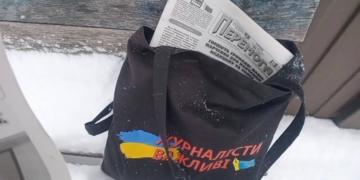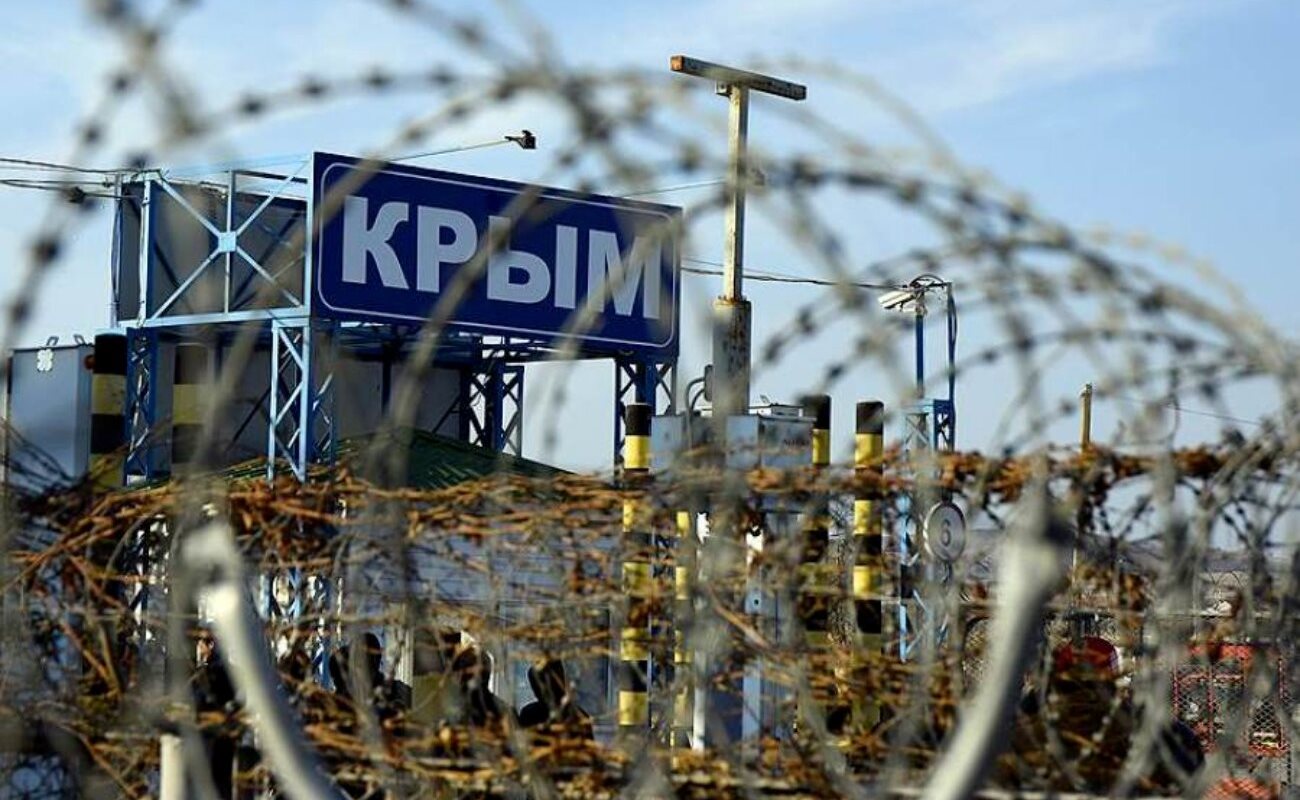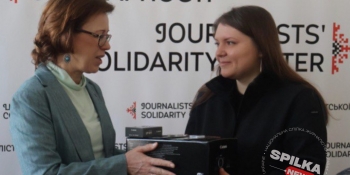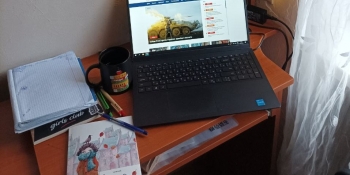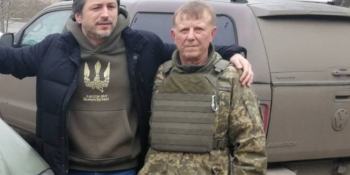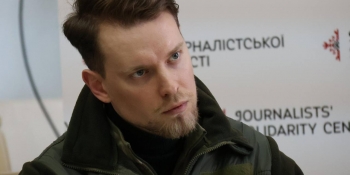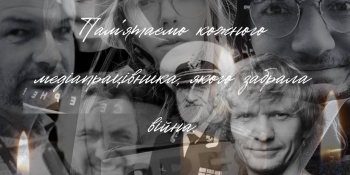After the beginning of Russia’s large-scale aggression against Ukraine, the repressive regime in Crimea only intensified. Instead, the occupiers use the accumulated “experience” in the struggle against freedom of speech on the peninsula in other occupied Ukrainian territories.
This was discussed during the educational meeting entitled Focus on Crimea, which was held online at the National Union of Journalists of Ukraine (NUJU) on November 3 with the participation of Ukrainian media professionals, students from journalism faculties and human rights defenders.
“Today, we are comparing the current situation with the one a year ago in order to better understand the realities of lack of freedom that are taking place in Crimea today and strengthen our desire to resist the occupiers and liberate the occupied territories of Ukraine. If a year ago politicians and public figures were afraid to raise the topic of the return of Crimea, now, it has become one of the leading topics in the Ukrainian and international media,” notes Sergiy Tomilenko, the President of the NUJU.
Sergiy Tomilenko also noted that Russia is spreading to the newly occupied territories the practice of forming not only its state structures, but also local organizations of the union of journalists of Russia. They were led by Gauleiters sent from Russia. The NUJU insists on the exclusion of the union of journalists of Russia from the European and World Federations of Journalists. The European Federation of Journalists supports the NUJU in the fact that Russian propagandists, instigators of hatred towards Ukraine, should also be brought to justice for war crimes.

Secretary of the Ukrainian State University / experienced Crimean journalist Mykola Semena emphasized that after the beginning of the large-scale aggression, the situation with freedom of speech in Crimea has become even more threatening, and repression against journalists, including public ones, is intensifying. In addition, the invaders spread their Crimean “experience” to other occupied territories.

Mariya Tomak, a human rights journalist and the head of the Crimean Platform maintenance service, noted that after 2014, a complete “cleansing” of independent professional journalists took place in Crimea, and the responsibility for providing objective information about the situation on the peninsula was assumed by public journalists, in particular, those who work within the Crimean Solidarity initiative. But now, after the start of the full-scale aggression, the situation has become even worse – any manifestation of solidarity with Ukraine is persecuted.
“There are known cases when people are detained just for spreading information about events in mainland Ukraine on WhatsApp. We see how the repressive regime, which was extended to media workers, bloggers, community journalists, is spreading, also spreading to people who simply inform their acquaintances about what is happening in Ukraine and about the war crimes of the Russian Federation,” noted Mariya Tomak.

As Olha Skrypnyk, the head of the Crimean human rights group, recalled, since 2014, systematic destruction of Ukrainian media and persecution of Ukrainian journalists took place in Crimea. When the editors were forced to leave Crimea, the systematic persecution of Crimean Tatar and other pro-Ukrainian activists, leaders of public opinion, including civil journalists, began. In particular, civil journalist Iryna Danylovych was kidnapped, deprived of communication with a lawyer for a long time, was subjected to threats (one of which was to take her to Mariupol and kill her there). And now, she is facing quite a common technique, accusations of making explosives and possessing weapons.

According to Olha Skrypnyk, since 2021, the Russian occupiers have begun jamming and blocking Ukrainian media not only in the territory of Crimea, but also in the neighboring Kherson Region. Russian-controlled Crimean media were broadcast on frequencies where Ukrainian mass media were supposed to speak.
“Now in the occupied Kherson Region, we can see a direct connection between the information space and the war: Russia was preparing society for it even before the massive invasion. In addition, Crimea has become the base where the occupiers transport activists and journalists from the Kherson and Zaporizhzhia Regions, accusing them of state terrorism or participation in the Crimean Tatar Legion named after Noman Celebicihan. Now there are several dozens of such people in the Simferopol pre-trial detention center,” emphasized Olha Skrypnyk.
She also added that Russia actively used Crimean resources to create a negative image of Ukrainians and Crimean Tatars with the help of ‘hate speech’, and now it has even gone as far as calling for genocide, which is an international crime.

Volodymyr Prytula, the head of the Krym.Realii project of Radio Liberty, noted that in 2014-2021, Crimea felt pressure on freedom of speech and selective persecution of journalists, and now everyone who tries to spread information about what is happening in Crimea and in mainland Ukraine is persecuted.
“In the first months of Russia’s large-scale aggression, people tried to post videos and share information, now it is becoming more and more difficult to do so every day. If earlier Krym.Realii managed to maintain its correspondent network, now due to aggression, mobilization, repression, we faced the fact that part of our public correspondents had to leave Crimea with another wave of forced migrants. It’s getting harder and harder to get information from the peninsula,” said Volodymyr Prytula.
A well-known Crimean journalist and human rights activist / representative of the Crimean Solidarity initiative, Lutfie Zudiyeva, noted that interest in Crimea among the Ukrainian and international public has increased significantly recently. But it is now difficult to cover the Crimean events: if earlier it was possible to get a press card from one of the Russian opposition publications, now this possibility has almost disappeared: the opposition editorial offices have either been shut down or gone abroad.
As Serhii Tomilenko emphasized, Ukrainian journalists express solidarity with Vladyslav Yesypenko, who was sentenced to five years in prison in Crimea on a false pretext, and other repressed Crimean journalists. Today, Vladyslav Yesypenko was awarded the Ihor Lubchenko National Prize for the Protection of Freedom of Speech.
So far, 15 Crimean journalists have been repressed: two professional (Vladyslav Yesypenko and Oleksii Bessarabov), a public figure / experienced journalist / deputy head of the Mejlis of the Crimean Tatar People, Nariman Dzhelial, and 12 civil journalists.





